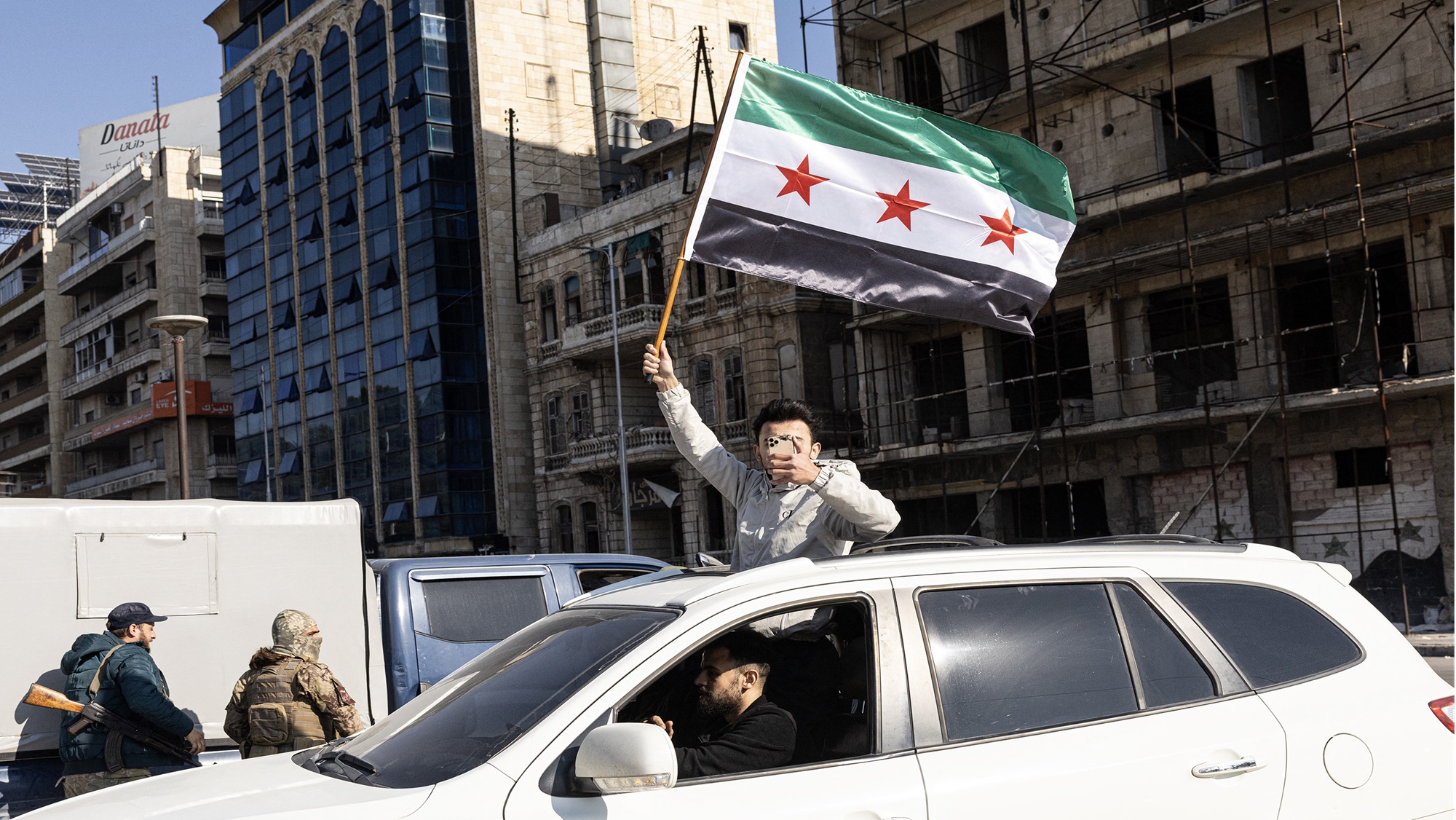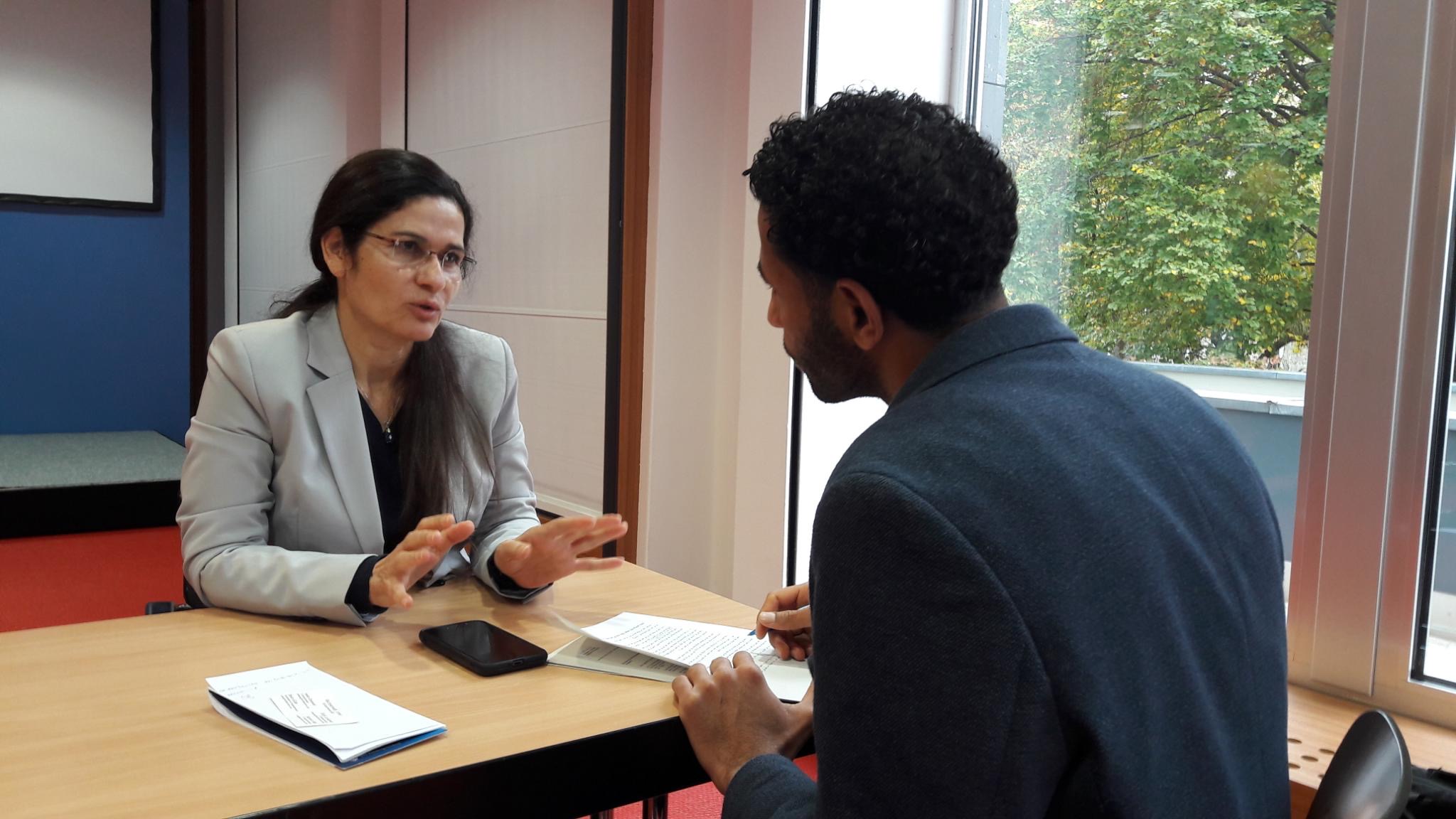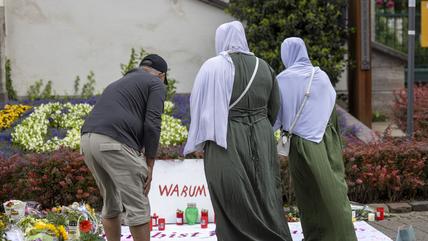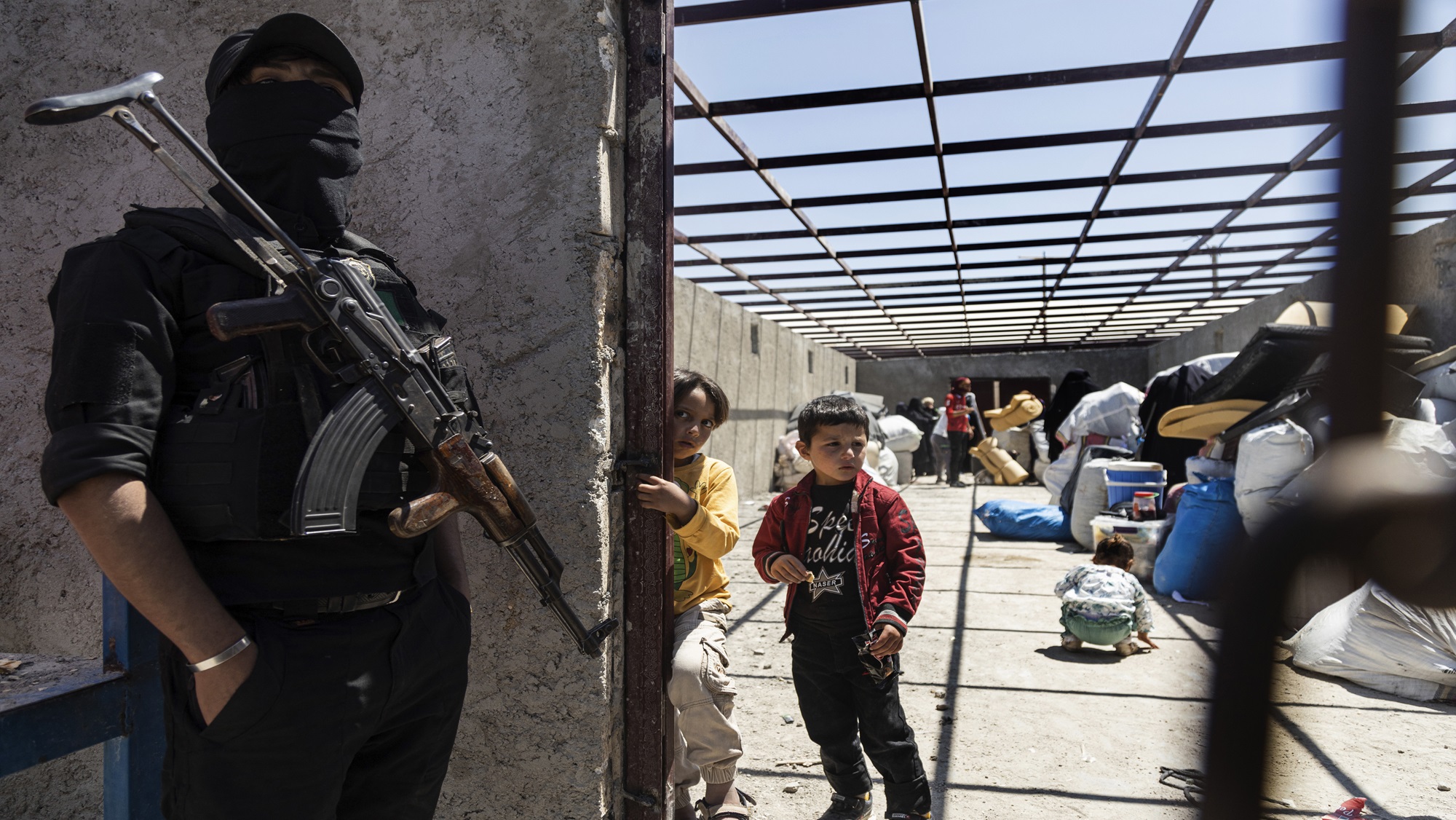"Syria should be governed federally like Iraq or the UAE"

Qantara: Were you surprised by the opposition groups' attack on Syrian President Bashar al-Assad's troops and the rapid capture of Aleppo, Syria's second-largest city?
Elham Ahmed: Sooner or later, there had to be a military escalation. The Syrian army's withdrawal without resistance shows how vulnerable Bashar al-Assad is without his allies. We are closely monitoring these developments and their consequences for the well-being of our ethnically and religiously diverse population in North and East Syria. The last few days have confirmed the position of the Autonomous Administration of North and East Syria: the Syrian crisis cannot be resolved militarily, but only through a political process.
There are reports that you are considering negotiations with opposition groups to keep Kurdish towns under the control of the SDF, the military arm of the autonomous administration.
We reiterate our readiness to engage in dialogue with all Syrian and regional parties to maintain stability in Syria and protect the civilian population. We have no interest in further escalation, as this would have repercussions throughout the region. IS would seize the opportunity and attempt to intensify its attacks.
What is your greatest concern in light of these developments?
First and foremost, Aleppo's pluralistic identity is under threat. If Christians and Kurds in Aleppo have to live in fear, this would deepen the division of Syria and endanger inter-ethnic and inter-religious coexistence. In northern and eastern Syria, we are preparing to take in at least 120,000 people from Shahba who have been displaced by the Islamists. Our local authorities in Tabqa and Raqqa are already building emergency shelters for the displaced. The international community must react quickly to provide the necessary humanitarian aid without red tape. The civilian population must not suffer from a power struggle between the regime and the Islamists.
Syrian opposition groups continue to demand Assad's resignation. What is your position?
This depends on an electoral process and the opinion of the entire Syrian people. We are in favor of a change in power and institutional work. Only then will there be a change in the administration. So we are not concerned with this or that name, but we are definitely in favor of a change in the system of government in Syria.

New wave of violence after protester death?
Locals in southern Syria have been protesting peacefully for months now, despite their government's brutal crackdown. But in late February, for the first time, a demonstrator was killed
Six years have passed since the establishment of the Autonomous Administration of North and East Syria. What is your next step?
We were about to hold local elections again, but the situation in the region did not allow for it, as the accession of new territories to the Autonomous Administration led to international reactions and pressure, especially from Turkey. Politically, we are maintaining a dialogue with, among others, the government in Damascus and other political forces in Syria. In October, we held a conference in Brussels with representatives of around 30 factions, political entities and independent politicians with democratic leanings. So the channels of communication are open, despite the forces that oppose us.
You insist on minority rights in Syria. What are you demanding?
Recognition of the ethnic situation in Syria, especially the Kurdish question. This involves the recognition of the Kurdish language; a recognition of our basic rights and their inclusion in the Syrian constitution, as well as a decentralization of the country that takes into account the political and cultural rights of other population groups in Syria, although not, of course, in the form of an exclusively Kurdish-dominated Kurdistan region. North and East Syria is a slightly different model. The administration is participatory and not exclusively Kurdish. We believe that Syria should be organized into regions which can be defined according to their cultural and geographical character, with a central government. Syria should be governed federally like Iraq or the United Arab Emirates.
So you see the self-governing region as a model for a solution to the entire Syrian crisis?
The structure of the Autonomous Administration and the cities under its control is decentralised. If this experience were generalized according to the specificities of other regions, it could be a key to the solution. The Assad regime claims that decentralisation would lead to division. But we tell them: our experience is proof to the contrary. The regions will not separate from each other, nor from Syria.
But will Assad agree to such a scenario?
Decisions in Syria are currently most influenced from outside, especially by the countries that interfere in Syria, be that Iran, Turkey or Russia. The solution to the Syrian issue therefore requires both an international consensus and a consensus among the Syrian factions. This remains difficult, but we do not give up hope.
Before the attack on Aleppo, there were signs of rapprochement between Ankara and Damascus. According to analysts, this was due to the common interest of Turkey and Syria in preventing a Kurdish-led autonomous region. What is your position on this?
For Damascus, Turkey's withdrawal from the occupied territories in the northwest of the country is a priority, as are the Syrian factions that are under Turkish protection and pose a threat to the government in Damascus. For Turkey, the future of northern and eastern Syria is a priority. Therefore, an agreement between the two countries is complicated. We have not been invited to talks.

You were in Germany a few weeks ago. What kind of passport did you actually use to enter the country?
For security reasons, I cannot explain the mode of travel, but of course, I use a Syrian passport. But it is difficult to travel abroad from northern and eastern Syria. There are two ways. The first is through the Kurdistan region of Iraq, with the border crossing (from Syria to Iraq: ed.) intended for humanitarian aid. The second is through Qamishli Airport; from there you can reach Damascus and travel to Beirut, for example.
You came to Germany because two Kurdish associations filed criminal charges against Turkish President Recep Tayyip Erdoğan and other Turkish officials with the Federal Public Prosecutor in Karlsruhe. They accuse them of war crimes in northern and eastern Syria. What outcome do you expect from this complaint?
There may not be an investigation because these violations took place outside Germany's borders, but politically, the complaint could put pressure on Turkey to stop its attacks on northern and eastern Syria. Turkey is attacking civilians, service facilities, infrastructure and hospitals there, including the German-supported medical center in Kobane.
Turkey says these attacks are a response to an attack in Ankara in October.
We have repeatedly stressed that we are not involved in any operations inside Turkey. Turkey has crossed the border, occupied our territory and violated Syrian sovereignty, so we have the right to react and defend our territory.
What is your position on the debate in Germany about deportations of Afghan and Syrian refugees who have committed crimes?
The German judiciary has already decided that deportations are permitted. We have expressed our willingness to cooperate with the German government if the offenders come from northern and eastern Syria. However, this will only be possible within a certain framework and under certain conditions.

The rule of law and its careless enemies
Those who turn to Assad or the Taliban instead of the German constitutional state when it comes to questions of security, fail to understand what makes those regimes tick.
What conditions? And how many deportations are being negotiated?
Northern and eastern Syria seemed to be more stable than other regions until the current offensive. That was true. But the Turkish attacks are damaging the infrastructure throughout the region, for example. Therefore, these must be stopped, the infrastructure restored and conditions created for the return of deportees. Especially if they have a criminal record and need to be monitored. There is currently no concrete number of deportations, but an agreement has been reached on the return of refugees who have committed crimes after they have served their prison sentence in Germany.
What about the return of other Syrian refugees from Germany?
We have always said that we’re ready to talk about the repatriation of refugees. Now it is time for the German government to take a step towards us.
Many German IS supporters are still imprisoned in the al-Hol and Roj camps (in north-eastern Syria). Why have they not been repatriated yet?
We would like to thank the German government for its close cooperation on this matter. But unfortunately, cooperation has so far been limited to the repatriation of women and children with German citizenship. The next step is to expand cooperation to include male prisoners with German citizenship and to clarify the nationality of other German-speaking IS terrorists.

What about the remaining women and children who have been imprisoned for years under harsh conditions?
More than 45,000 family members of IS supporters live in al-Hol and Roj. Around 10,000 dangerous IS terrorists, including 2,500 from third countries, are held in prisons. We also have two rehabilitation centers for children: the Al-Huri center, which has been taking in boys since 2017, and Urkesch, which opened last year, with around 250 children of many nationalities, including Germans and French. The latter number is very small compared to the large number of children living with their mothers in the camps who are still vulnerable to radical ideologies. It is therefore a ticking time bomb.
Donald Trump, who is now returning to the White House, had decided to withdraw some of the US forces from Syria. What options do you have if he decides to withdraw the remaining forces as well?
We congratulate President Trump on his election victory and express our readiness for close and intensified cooperation. Our SDF forces have proven to be a reliable partner in recent years and we want to further strengthen this partnership. Whether the US forces withdraw or stay depends on the US strategy and interests. In Iraq, we currently see that the Iraqi government is pushing for a withdrawal of US forces, but this remains very unlikely given the unstable situation and the Iranian presence in the country. The Israeli war in Gaza has also increased the likelihood of a continued US troop presence in the region.
Final question: the dream of a Kurdish state is still a subject of discussion. Is such a state conceivable, with the Kurdistan region in Iraq and self-government in Syria?
The divisions and state borders in the Middle East from the post-Second World War period still exist. We do not support them, of course, but nor do we have the power to eliminate them. We insist that all population groups in Syria receive their national and cultural rights, especially the Kurds. As far as the realization of the dream of a Kurdish state is concerned, the international situation will ultimately decide.
This text is a translation and slightly shortened version of the Arabic original, in German translation, on Qantara.de. Translation: Louise East.
© Qantara.de
